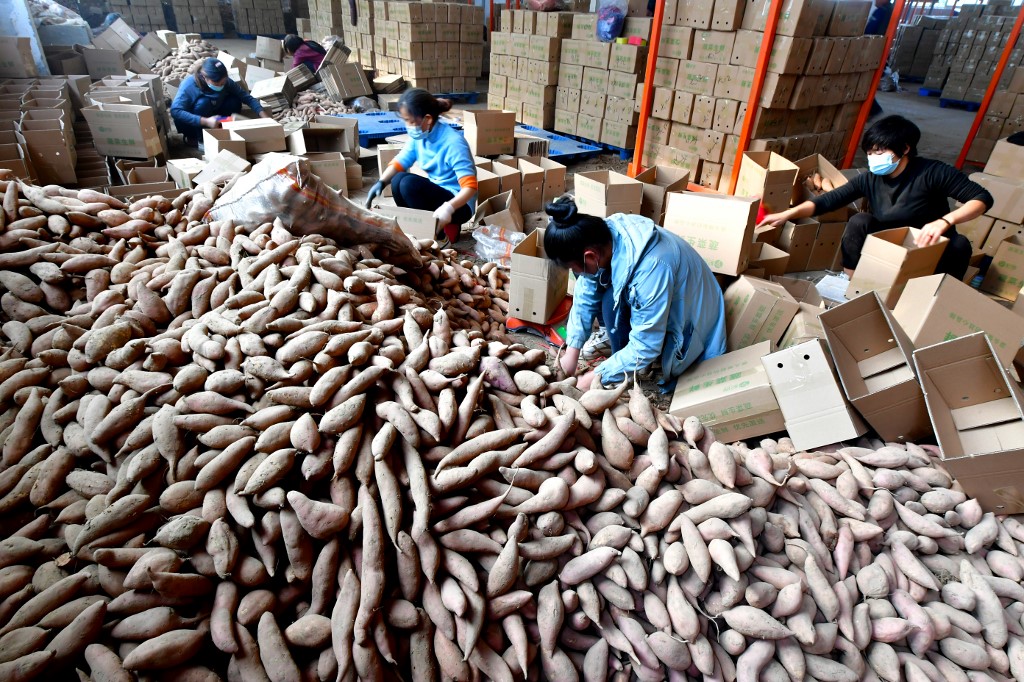(ATF) In a major move as China ploughs into its next development stage, top officials are pushing finance and insurance resources toward rural areas, partly so China’s rural population doesn’t get left behind in the race to the future.
Chen Yuanhao, head of the Poverty Alleviation and Coordination Division, which guides the Finance Department, and the China Banking and Insurance Regulatory Commission has announced that rural areas – especially impoverished areas and poor people – is the main battlefield and the major front for inclusive finance.
A report in the People’s Daily on November 12 quoted Chen Yuanhao, who said he believes that “inclusive finance” is an inevitable requirement of current development. The promotion of inclusive finance can coordinate efficiency and enhance fairness, enhance the active effectiveness of financial services to the real economy, and promote a sustainable and healthy development of the economy and society.
“Inclusive finance must not only be the ‘icing on the cake,’ but also provide charcoal in the snow, and solve the problem of financing access and assist expensive financing,” Chen Yuanhao said.
“First of all, to be ‘universal’, financial services must be widely and fully covered, focusing on providing financial services to small and micro enterprises and disadvantaged groups. Secondly, they must achieve ‘benefits’, to truly benefit disadvantaged groups, and to provide financial services at preferential prices. Thirdly, the finance and insurance industries must achieve sustainability, which will be managed through external incentive and restraint policies such as fiscal policy, monetary policy, and differentiated regulatory policies,” the anti-poverty chief said.
“Internal financial institutions will focus on providing resources to strengthen management, promote inclusive finance to balance costs, benefits and risks, and achieve business sustainability,” he said.
Allocation of resources
Chen Yuanhao said implementation of the preferential support policy requires the organic integration of the decisive role of the market in the allocation of resources and better use of the government’s role. This is manifested in four aspects. The first is a continuous increase of poverty alleviation credit to support development of industries and improve infrastructure in poor areas. As of the end of the third quarter of 2020, the balance of national finances targeted at poverty alleviation loans was 4.33 trillion yuan. More than 420 billion yuan had been invested in relocation loans for poverty relief.
The second aspect is solid and in-depth advancement of insurance to help alleviate poverty, to effectively prevent people being flung back into poverty because of disasters or disease. Improving the insurance system to counter poverty with “agricultural insurance & major illness insurance” was a core measure. In the first three quarters of 2020, agricultural insurance provided 84.66 billion yuan of risk protection for poor households, covering 16.47 million poor households.
The third need is to continue to increase financial support to deeply impoverished areas. In the first three quarters of this year, the growth rate of loans in 334 deeply impoverished counties nationwide was 4.22 percentage points higher than the national loan growth rate.
The fourth aspect is to expand the scope of basic financial services in poverty-stricken areas, to improve quality and efficiency, and focus on improving the financial ecological environment. At the end of the third quarter, there was a 99.66% coverage rate for rural basic financial services in 832 national key counties for poverty alleviation and development. The coverage rate for insurance services in villages and towns had also reached 99.9%.
Chen Yuanhao said the main task in doing a good job in microfinance for poverty alleviation is to pay close attention to implementing political responsibilities. And those tasks were assigned to departments and local officials.
He said they needed to improve the top-level design of microfinance for poverty alleviation.
‘Technology hasn’t changed finance’
In related news, Liang Tao, vice chairman of the China Banking and Insurance Regulatory Commission, said on November 11, when attending the 15th 21st Century Asian Finance Conference that financial technology has not changed the nature of finance.
So, financial activities are fully regulated in accordance with the law, and similar businesses and subjects are treated equally. As long as similar financial businesses are engaged in similar financial businesses, they should accept consistent market access and continuous supervision under the framework of current laws and regulations – follow the same business rules and risk management requirements.
At the same time, the relationship between financial development, financial stability, and financial security must be handled well, and close attention must be paid to new risks brought about by digital transformation, especially risk challenges such as network security, data protection, and market monopoly.
Data and other fields are more adapted to the comprehensive risk management system required by the digital age, he said.
His remarks, which follow the suspension of the Ant Group’s initial public offering last week, were posted on the events account on Weibo.
























